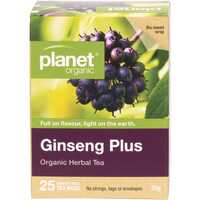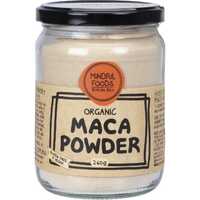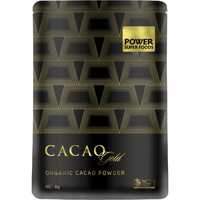Life can be incredibly demanding for the body and mind. Physical fatigue affects everyone from time to time, and stress is a common issue with complex mental symptoms. If you want to boost your energy levels and live your best possible life in the modern world, it's important to eat the right foods. Along with exercise and sleep, following a healthy diet is the key to immediate energy production and sustainable energy reserves.
In this article, we'll look at food energy from multiple angles. We'll analyse the links between energy and nutrients, review life-affirming ingredients, and list some practical lifestyle tips to give you a natural boost.
Different Types of Energy
Before we learn how to boost our energy levels, it's important to understand the many different types of energy. In the context of human nutrition, food energy is chemical energy derived from food to sustain human life. Among other things, it helps to fuel everyday movement, regulate physical processes, protect against illness, and repair damage to muscles and cells. All foods provide energy in the form of calories, which is a basic measure of energy.
The energy contents of a given mass of food can be expressed as a unit of heat energy (calorie) or unit of energy (kilojoule).
We get most of our energy from aerobic respiration, with our bodies breaking down proteins, fats, and carbohydrates with help from oxygen and water. These three macronutrients, along with their environmental helpers, are absolutely essential to energy production. The human body also relies on smaller compounds like organic acids, polyols, and ethanol in order to produce energy. While the body also requires a wide range of micronutrients, such as vitamins and minerals, they are not directly involved with making energy.
Short Term Energy vs. Sustainable Energy
People need a continuous supply of food to access energy. While the human body is always in a state of imbalance, consuming food throughout the day helps to regulate the relationship between energy production and release. Some foods are better at delivering an immediate energy boost, and others offer a sustainable source of long-term energy.
Sugars and refined carbohydrates provide a quick energy boost, as do certain compounds like caffeine and guarana. However, while sugary drinks and snacks can be a great way to get immediate energy, they're often associated with a come-down. If you want a sweet energy rush that doesn't leave you depleted, natural fruits like bananas, oranges, and blueberries provide a more gentle energy release.
Various forms of sugar, including fructose and sucrose, are actually carbohydrates. Just like refined sugars, these simple carbohydrates can be broken down and absorbed quickly for an immediate source of energy. Fast-working carbohydrates include simple grains like white rice, white bread, and pasta. While one gram of carbohydrates contains just four calories, these calories are turned into energy as soon as they're ingested.
Long-term energy is another thing entirely. While most foods don't provide an immediate energy hit, they may give your body what it needs to fight off pathogens or carry out repairs. Instead of focusing on the short-term wonders of sugars and carbs, it's time to think about proteins and fats. Rather than firing your engines, these macronutrients act as building blocks and batteries for the production, storage, and release of energy over time.
Proteins are complex molecules, and your body takes much longer to break them down. Just like carbs, one gram of protein contains roughly four calories. However, most of these calories are not available as a fuel source. Protein delivers around 5% of your daily energy requirements in total and up to 15% in times of strenuous activity. Instead of providing immediate fuel, proteins are broken down into amino acids, which are used to repair muscles, make hormones, and perform various other essential activities.
Fats work even slower than proteins, but they're incredibly energy-efficient. A single gram of fat supplies the body with roughly 9 calories, which is more than double that of carbs or proteins. While the body normally uses fats as a storehouse, lowering your intake of carbs helps to turn fatty foods into fatty acids. This is the basic principle behind the ketogenic and paleo diets, although it's important to consume healthy fats like omega-3s and omega-6s.
Boost Your Energy with These Life-Affirming Foods
All over the world, for many thousands of years, humans have eaten certain foods in an effort to increase their energy levels. Whether it was on the battlefield or in the library, certain foods and supplements are known to increase physical stamina and/or mental focus. The following five ingredients are among the very best:
Cacao
Cacao is the plant source of cocoa and chocolate. While lots of people eat chocolate for a boost, most of the time, it provides a short energy hit due to the high sugar content. Raw cacao is a great alternative, with this nutritious seed helping to increase your energy in a gentler and more sustained way. Cacao has no sugar and is very low in caffeine, but it has high levels of theobromine. This compound can help to stabilise your energy levels throughout the day, and it has a positive influence on mood and mental alertness.
Maca
Maca is an ancient superfood with a newfound popularity. Native to the high Andes Mountains in South America, this edible root has been shown to improve endurance, mood, and libido in various studies. These benefits have been attributed to its high nutrient density, which includes all three macronutrients and a healthy amount of fibre and calcium. Maca is classified as an adaptogenic plant, which means it helps the body to manage environmental stress. Maca can be effective for energy, with some people experiencing an immediate boost and others noticing effects after a prolonged period of use.
Guarana
Guarana is a common ingredient in many energy drinks, and it's also available as a powder for use in shakes and smoothies. Native to South America, it has been used by Amazonian tribes for many centuries. Guarana contains caffeine, theobromine, and theophylline — with these compounds helping to reduce fatigue, boost brain function, and promote weight loss. Guarana is also rich in antioxidants, which help to protect your body against heart disease, ageing, and certain types of cancer.
Ginseng
Ginseng is another energy-boosting ingredient with ancient roots. People in Asia have consumed this plant for thousands of years, with fresh, white, and red ginseng varieties used in traditional medicine for their health properties. The two most significant compounds in ginseng are ginsenosides and gintonin, both of which offer antioxidant, anti-inflammatory, and brain-boosting benefits. Ginseng provides sustainable energy by helping to improve various cognitive functions, including memory, behaviour, and mood. It also acts directly to increase energy production in the cells, with polysaccharides and oligopeptides helping to reduce fatigue.
Chia seeds
Chia seeds have become very popular over recent years, thanks in part to their energy-producing qualities. Chia seeds are an amazing source of long-term energy, as they help the body to burn more calories throughout the day. Unlike caffeine, sugar, and other short-term hits, chia seeds deliver stable energy thanks to a fantastic ratio of protein, minerals, healthy fats, and fibre. Because these nutrients are released slowly over time, chia seeds are ideal for breakfast meals or pre-workout snacks. In ancient Mayan and Aztec cultures, they were consumed before and during physical activity and widely recognised as "running food."
Setting Sustainable Energy Habits
If you want to boost your energy levels, you need to follow healthy, sustainable habits. While food intake is a huge piece of the puzzle, it's also important to do regular exercise and pay attention to your sleeping habits. These three factors often work together, with a healthy diet providing energy for exercise and regular workouts making it easier to sleep through the night.
The following tips are a great place to start:
Healthy food
- Eat fresh seasonal fruits and vegetables
- Swap processed products for natural foods
- Limit caffeine and other short-term solutions
- Swap bad fats for healthy omega-3 fats
- Enjoy whole grains and complex carbohydrates
Regular exercise
- Try to develop a consistent exercise routine
- Start small and build slowly to avoid injuries
- Incorporate exercise into your everyday life
- Stay social by working out with friends and family
- Get out into nature to stay motivated
Consistent sleep
- Avoid stressful activities in the evening
- Put down your screens before bed
- Only use your bedroom for sleep and intimate activities
- Avoid caffeine, sugar, and alcohol before bed
- Eat well and exercise often to enjoy better sleep
Natural supplements
Along with these key factors, supplements also deserve special mention. While you can get all the goodness you need from whole foods alone, natural extracts, powders, and potions make everything so much easier. Protein powders and superfoods are perfect for shakes and smoothies, and nutrient-rich bars, bites, and cereals are ideal at any time of day. When you combine three healthy meals with natural snacks and supplements, you can boost your energy levels and sustain your lifestyle for years to come.
If you're looking for healthy, energy-boosting foods and supplements, you've come to the right place. Check our huge range of premium products today, or contact our friendly team for more information.


 Certified Organic
Certified Organic Vegan Friendly
Vegan Friendly  Vegetarian
Vegetarian Organic Ingredients
Organic Ingredients Dairy Free
Dairy Free Gluten Free
Gluten Free Keto Friendly
Keto Friendly


































